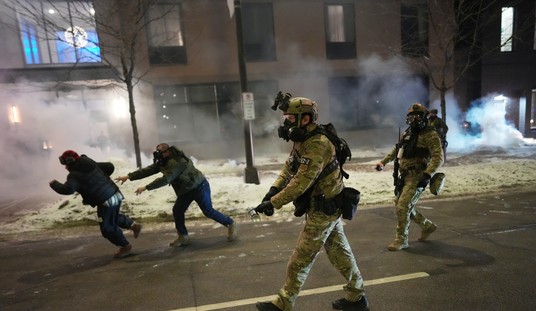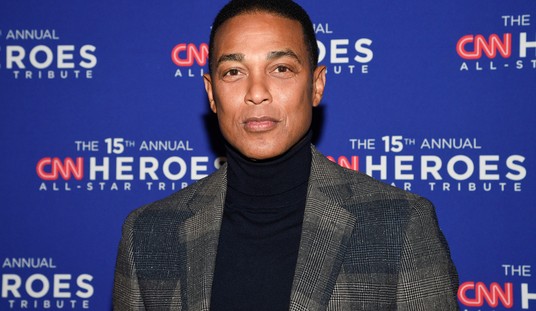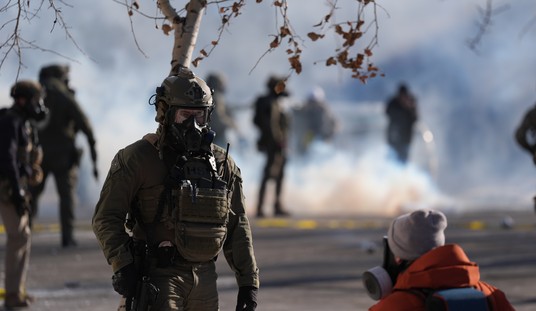Americans disdain snobbery in all its forms except the most popular one: reverse snobbery. Joe Biden would never get up in front of a crowd and suggest that the citizens of Manhattan are morally superior to the residents of Possum Gulch, Ark. But Sarah Palin was happy to tell the Republican National Convention that the very best people come from the country.
"We grow good people in our small towns, with honesty, sincerity and dignity," she declared, quoting the late journalist Westbrook Pegler. "They are the ones who do some of the hardest work in America, who grow our food, run our factories and fight our wars. They love their country, in good times and bad, and they're always proud of America." Not like those idle, insincere, lying city folks who dare to suggest that America can sometimes be wrong.
But no one seemed to take offense. The myth of rural virtue and urban vice is an old one in this country, and it persists no matter what the changes in the landscape. And whatever questions Palin may face in her debate with Biden, her paeans to small-town virtue aren't likely to be among them.
Most Americans, it seems, can tolerate hearing of the superiority of the small town, as long as they don't have to live in one. You wouldn't know it from listening to country music stations, or to the governor of Alaska, but four out of every five Americans choose not to reside in rural areas.
Maybe if they ventured beyond the city limits more often, those people would not be so inclined to believe everything they hear about the merits of rustic hamlets, which harbor a full complement of social ills.
Not everyone in rural America gets high on fresh air and the smell of new-mown hay. Illicit drugs are nearly as common out there as they are in cities and suburbs.
Recommended
In 2007, a survey of 8th graders by the Monitoring the Future project at the University of Michigan found that country kids were 26 percent more likely to experiment with drugs than middle-schoolers elsewhere. Overall methamphetamine consumption among adults and teens is more than 50 percent higher in the country.
The story with alcohol is worse still. "Relative to their urban counterparts, rural youth ages 12 to 17 are significantly more likely to report consuming alcohol," says a 2006 study by the Carsey Institute at the University of New Hampshire. Excessive boozing among adults, it noted, appears to be no less widespread in Mayberry than in Metropolis.
Nor is the countryside exempt from social problems often associated with the inner city -- such as, if you'll forgive me, out-of-wedlock births. The federal government apparently doesn't tabulate these births according to whether they occur in urban or rural areas. But it does break them down by state, and wide-open spaces are no guarantee of responsible sexual behavior.
The highest rates of births to unwed mothers are in Mississippi and New Mexico, both of which have high rural populations. The most urban states, New Jersey and California, do better than the average in out-of-wedlock births.
It's true that crime is much more common in the city than in the country. Is that because the sight of cattle grazing saps felonious impulses, or is it something else? Alfred Blumstein, a criminologist at Carnegie Mellon University, thinks the explanation is pretty simple. "It's a matter of social control," he says. "Small towns have networks of family and friends, and most everyone knows everyone else."
This deters crime in two ways. First, you don't want to damage your reputation among people who may ostracize you for doing wrong. Second, you don't want to rob someone who can easily identify you to police -- and in a small town, that limits your pool of victims. Crime is more common in cities because they offer a target-rich environment and much less chance of being spotted by someone who can tell the cops your name, address and 3rd-grade teacher.
One of these days, the 80 percent of Americans who live in more populated areas may tire of being obliquely insulted. Most urbanites and suburbanites don't think they're any better than their country cousins. But Palin might want to think twice before telling them they're worse.

























Join the conversation as a VIP Member